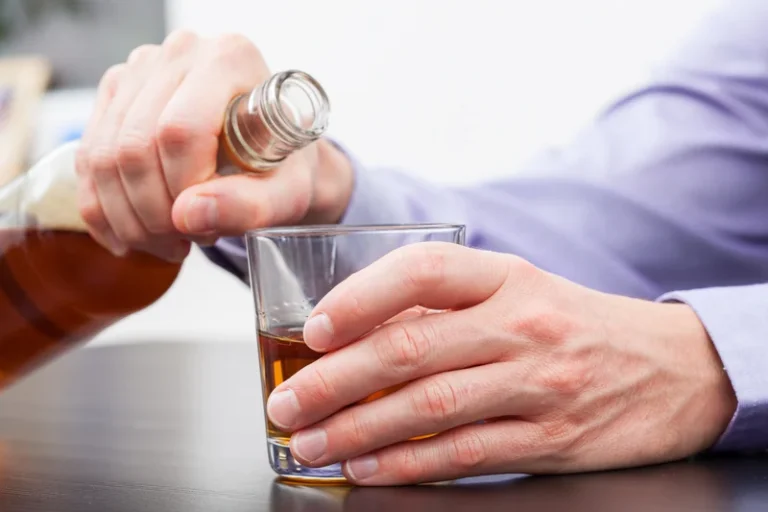
For many people, these groups may serve as their primary resource for changing their behavior, but they also often augment formal treatment. The 12 steps are also used in recovery programs for addictions other than alcohol. It’s important for individuals in recovery to identify their specific triggers and develop a personalized toolkit of coping mechanisms. Many types of recovery support are available, and many people make use of more than one type at any time and may shift from one type of support to another as recovery proceeds and needs evolve. There are some friends who are better left behind—those who are linked to the addictive experience. People in the throes of addiction are not capable of the best form of friendship.

Stage four: 48-72+ hours after alcohol withdrawal (Delirium Tremens)

This stage is a critical step towards achieving sobriety and lays the foundation for further treatment and rehabilitation. Once individuals recognize the need for change and accept the reality of their addiction, the next stage in the journey to alcohol recovery involves seeking help and treatment. This crucial step sets the foundation for long-term sobriety and can significantly increase the chances of successful recovery. These stages were developed by the National Institute on Drug Abuse as a resource on individual drug counseling for healthcare providers, but it is also a useful model for recovery from alcohol addiction.
We can help you along the path to a healthy, successful, and stable life.
- Although many people are tempted to make other major life changes during this stage of recovery, such as changing jobs, experts recommend focusing energy on stopping drinking for at least the first year.
- One of the surprising side effects of giving up alcohol is that your skin may start to look better.
- As time goes on, you and your therapist may decide to meet every other week instead of weekly.
- This might include examining the sort of lifestyle changes they’ll need to make or researching types of treatment and treatment facilities.
Our recovery programs are based on decades of research to deliver treatment that really works. By the time people reach the contemplation stage, they’ve begun to recognize they have a drinking problem and may want to get help, but they’re often on the fence about it. Engaging in subtle and sympathetic conversations and getting alcoholics to explore the pros and cons of their own behavior, for example, can help to lay the groundwork for the second stage of recovery. For example, they may say they are drinking a lot because they are stressed because of work. Or they could claim that it’s common to drink to relax and say that it’s no big deal. Our facilities across the U.S. offer a full continuum of care, custom treatment plans, and comprehensive discharge plans to aid in the success of your recovery.
- It is a multi-stage process that involves various steps, each crucial to the overall success of recovery.
- In fact, there’s even a term for people who abstain but who don’t make vital life changes to break a misuse pattern, stop other unhealthy lifestyle habits, and address problems that probably led them to drinking.
- If you’re struggling with alcoholism, our alcohol addiction treatment center can help.
- You can check in with your physician about side effect management, and if possible, look to manage side effects for several weeks to experience the positive effects and weigh the side effects and benefits.
- No matter which pathway of recovery a person chooses, a common process of change underlies them all.
- Moderate to heavy drinkers can also benefit from medical supervision in the acute withdrawal stage.
How long does it take for alcohol to get out of your liver?
- At the very least, self-care should include sleep hygiene, good nutrition, and physical activity.
- For instance, they may find a greater sense of community by joining a spiritual or religious group.
- Drinking excessive amounts of alcohol has a severe negative impact on a person’s health.
- So far, there’s no consensus on the medical definition of recovery in alcohol treatment literature.
- This article will describe the foundation of the steps, what each of the 12 steps of recovery means, what to expect when doing the steps, and how to help a person recovering from an addiction.
Further, those friends can serve as a cue that sets off drug craving and challenges the recovery process. Shame is an especially powerful negative feeling that can both invite addiction in the first place and result from it. It gets in the way stages of alcoholic recovery of recovery, self-acceptance, and accessing help when needed. Addiction involves brain mechanisms, particularly in the dopamine system crucial to reward processing. While stopping drug use is a pivotal aspect of recovery, it is only one part.
- So, giving up alcohol can help you to avoid these potentially deadly diseases.
- If you used alcohol as a form of stress-relief in the past, it’s important to replace drinking with healthier forms of coping and self-care.
- Alcohol recovery is a transformative journey that individuals with addiction undertake to overcome their dependence on alcohol and achieve sobriety.
- Through individual therapy sessions, they provide a safe and supportive environment for individuals to discuss their past experiences and emotions.
- Their brain is changing—and without help, there can be serious long-term consequences.
Secular Organizations for Sobriety (S.O.S.)

The second reason you might feel more anxious is because quitting alcohol can physiologically cause short-term anxiety. The central nervous system includes a neurotransmitter system that moderates https://ecosoberhouse.com/ racing thoughts. When binge drinking or consuming alcohol in excess, your body gets used to alcohol moderating those thoughts, and your natural moderation system stops doing its work.

When should you seek help to overcome alcohol addiction?
